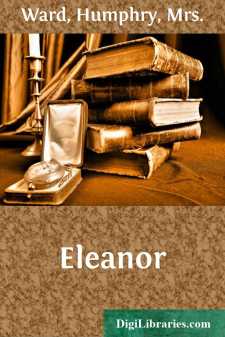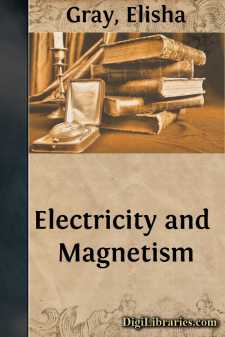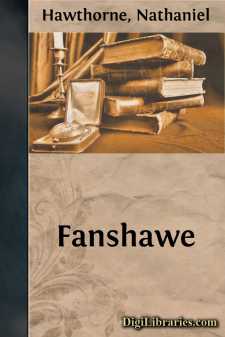Categories
- Antiques & Collectibles 13
- Architecture 36
- Art 48
- Bibles 22
- Biography & Autobiography 813
- Body, Mind & Spirit 142
- Business & Economics 28
- Children's Books 14
- Children's Fiction 11
- Computers 4
- Cooking 94
- Crafts & Hobbies 4
- Drama 346
- Education 46
- Family & Relationships 57
- Fiction 11829
- Games 19
- Gardening 17
- Health & Fitness 34
- History 1377
- House & Home 1
- Humor 147
- Juvenile Fiction 1873
- Juvenile Nonfiction 202
- Language Arts & Disciplines 88
- Law 16
- Literary Collections 686
- Literary Criticism 179
- Mathematics 13
- Medical 41
- Music 40
- Nature 179
- Non-Classifiable 1768
- Performing Arts 7
- Periodicals 1453
- Philosophy 64
- Photography 2
- Poetry 896
- Political Science 203
- Psychology 42
- Reference 154
- Religion 513
- Science 126
- Self-Help 84
- Social Science 81
- Sports & Recreation 34
- Study Aids 3
- Technology & Engineering 59
- Transportation 23
- Travel 463
- True Crime 29
Sort by:
CHAPTER I. PROLOGUE. THE ADVANTAGES OF ELBOW-ROOM. The professors of sociology, in exploring the mysteries of the science of human living, have not agreed that elbow-room is one of the great needs of modern civilized society, but this may be because they have not yet reached the bottom of things and discovered the truth. In crowded communities men have chances of development in certain directions, but...
more...
Upon His Majesties calling this last Parliament. T His last Parliament I called, not more by others advice, and necessity of My affairs, then by my own choice and inclination; who have always thought the right way of Parliaments most safe for My Crown, and best pleasing to my People: And although I was not forgetfull of those sparks, which some mens distempers formerly studied to kindle in...
more...
by:
Frank Harris
ELDER CONKLIN. As soon as the Elder left the supper-table his daughter and the new schoolmaster went out on the stoop or verandah which ran round the frame-house. The day had been warm, but the chilliness of the evening air betokened the near approach of the Indian summer. The house stood upon the crest of what had been a roll in the prairie, and as the two leant together on the railing of the stoop,...
more...
CHAPTER I FORBIDDEN WATERS Richard Gregory stirred restlessly in his sleep vaguely aware of an unfamiliar sound, a faint tapping, insistent, disturbing. He wakened sharply and sat bolt upright, conscious of the fact that he was fully dressed. Then he remembered. "All right, Bill," he called softly. "Coming." It took but a minute to shove his automatic into his pocket and secure his...
more...
PREFACE. Sæmund, son of Sigfus, the reputed collector of the poems bearing his name, which is sometimes also called the Elder, and the Poetic, Edda, was of a highly distinguished family, being descended in a direct line from King Harald Hildetonn. He was born at Oddi, his paternal dwelling in the south of Iceland, between the years 1054 and 1057, or about 50 years after the establishment by law of the...
more...
by:
Humphry Ward
CHAPTER I 'Let us be quite clear, Aunt Pattie—when does this young woman arrive?' 'In about half an hour. But really, Edward, you need take no trouble! she is coming to visit me, and I will see that she doesn't get in your way. Neither you nor Eleanor need trouble your heads about her.' Miss Manisty—a small elderly lady in a cap—looked at her nephew with a mild and...
more...
What is Guilt? A stain upon the soul. And it is a point of vast interest, whether the soul may contract such stains, in all their depth and flagrancy, from deeds which may have been plotted and resolved upon, but which, physically, have never had existence. Must the fleshly hand and visible frame of man set its seal to the evil designs of the soul, in order to give them their entire validity against...
more...
FORWARD The present book is a continuation from "Psychoanalysis and the Unconscious." The generality of readers had better just leave it alone. The generality of critics likewise. I really don't want to convince anybody. It is quite in opposition to my whole nature. I don't intend my books for the generality of readers. I count it a mistake of our mistaken democracy, that every man...
more...
by:
Elisha Gray
CHAPTER I. THE AUTHOR'S DESIGN. The writer has spent much of his time for thirty-five years in the study of electricity and in inventing appliances for purposes of transmitting intelligence electrically between distant points, and is perhaps more familiar with the phenomena of electricity than with those of any other branch of physics; yet he finds it still the most difficult of all the natural...
more...
CHAPTER I. "Our court shall be a little Academe."—SHAKESPEARE. In an ancient though not very populous settlement, in a retired corner of one of the New England States, arise the walls of a seminary of learning, which, for the convenience of a name, shall be entitled "Harley College." This institution, though the number of its years is inconsiderable compared with the hoar antiquity of...
more...











